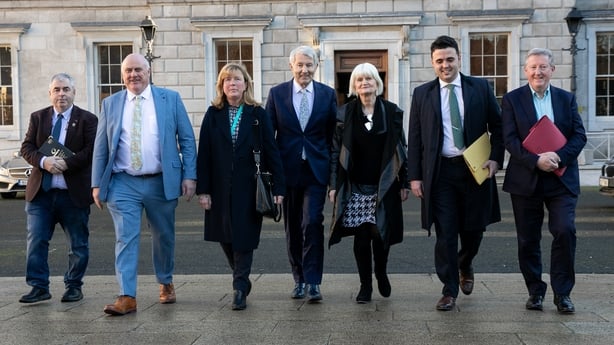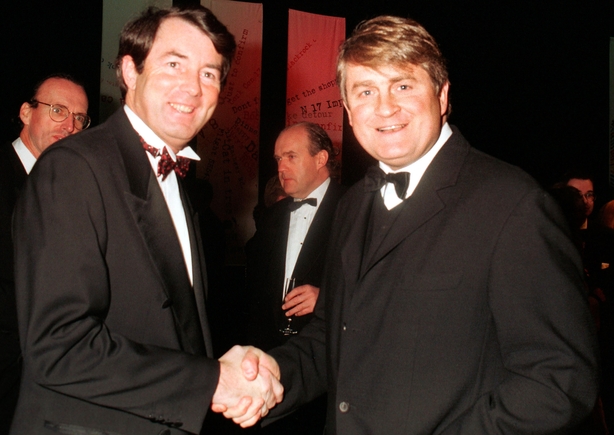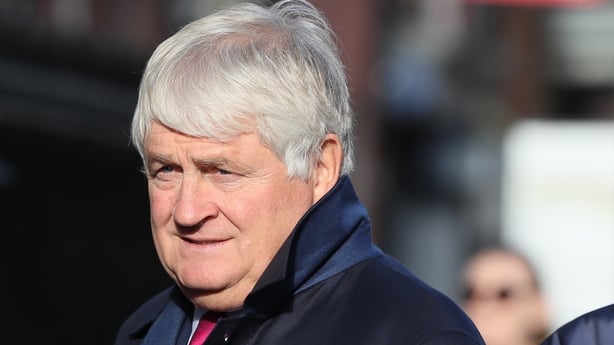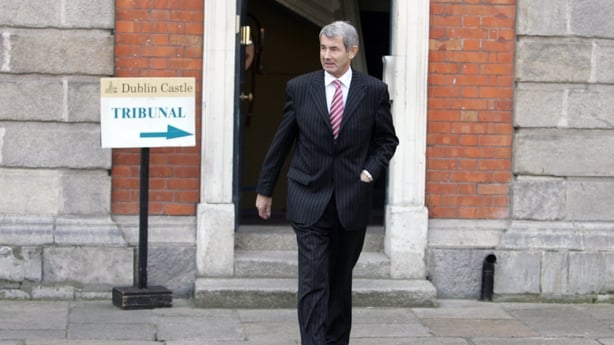Michael Lowry showed his annoyance this week when he was questioned about his past.
His anger was evident on Wednesday when he was probed about his reputation in light of negative findings about him in the 2011 Moriarty Tribunal.
In front of Leinster House, he told one reporter: "You've also tried to undermine the mandate that I’ve got, the very strong mandate that I’ve got from the people of Tipperary and north Kilkenny."
He was flanked by members of the Regional Independent Group, which was led by him through government formation talks over the past weeks.
In those discussions, he has leapfrogged from his role as a long-standing Independent TD to a key architect of the incoming government led by Fianna Fáil and Fine Gael.
His support enables the two parties to form a coalition with a robust majority.

While he will not be a minister in the new administration, there is no doubt he has re-entered mainstream politics as the lead negotiator for the Regional Independents.
When asked about his past, Mr Lowry said: "I enjoy the confidence of my group and I also enjoy the confidence of the Taoiseach and Tánaiste in the negotiations I had, because unlike you they’ve respected the mandate that I have from the people."
His remarks suggest a belief that his key position in government formation talks has enhanced his reputation - after all, Fianna Fáil leader Micheál Martin and Fine Gael leader Simon Harris did business with him.
Yet in 2011, Mr Martin was scathing about Mr Lowry in the Dáil following publication of the Moriarty Tribunal findings.
"This report is a deep indictment of the conduct of deputy Lowry," he said.
Mr Martin, also calling Mr Lowry a "rogue politician", added: "We, therefore, believe that deputy Lowry should consider his position and resign from Dáil Éireann."
But, the TD remained in place.
What was the Moriarty Tribunal about?

In the early 1990s, the then-government decided to open the mobile phone sector to competition.
At the time, Ireland trailed behind other European countries and the only operator in the market was a subsidiary of Ireland’s State-owned landline company Telecom Éireann.
Businessman Denis O'Brien set up a consortium called Esat Digifone, which included Norwegian state telecoms company Telenor.
It successfully applied to operate Ireland’s second mobile phone company in 1996.
Immediately after the outcome of the hotly-contested competition, questions began to swirl about the process.
The politician who oversaw it was Mr Lowry, who at that time was a Fine Gael TD and the minister for communications.
Amid considerable controversy, he was forced to resign as minister and became an Independent TD.
An inquiry was set up to investigate payments to politicians and its terms of reference named Mr Lowry specifically.
After 14 years, the findings of the Moriarty Tribunal were published in 2011.
It found it was "beyond doubt" that Mr Lowry imparted substantive information to Mr O’Brien which was "of significant value and assistance to him in securing" the licence for Esat Digifone.
It concluded that over a three-year period Mr Lowry received payments from Mr O’Brien through a series of "clandestine" property deals involving third parties.
It said Mr Lowry received "IR£147,000 from Mr Denis O’Brien in July 1996, stg£300,000 from Mr Denis O’Brien in March 1999 and benefit to the equivalent of a payment in the form of Mr O’Brien’s support of a loan of stg£420,000 in December 1999".

In a 2018 RTÉ documentary, Denis O'Brien - The Story So Far, Mr Lowry addressed the findings.
He said: "There was no magic pot of gold. The reason for that is it never existed. It was phantom.
"And I was subjected to 14 years of the Moriarty Tribunal and at the end of it, the tribunal came to conclusions which weren’t based on evidence, which weren’t based on fact, and which were not substantiated in any way by evidence from anybody."
In an interview on the Six One News in 2011, on the day the tribunal’s report was published, Mr O'Brien said: "They looked at every bank account I had in the world ... And they still couldn’t find a payment that I made to Michael Lowry because I never did.
"Not one red cent went to Michael Lowry when he was minister, a government official, when he was a TD or a private citizen."
What has happened since the Moriarty Tribunal report was published?

The findings led to an investigation by the gardaí.
Earlier this month, it emerged a file was sent to the Director of Public Prosecutions just as government formation talks were entering their final stages.
In a statement, Mr Lowry continued to insist there was "no wrongdoing or impropriety" attached to the award of the mobile phone licence.
The Opposition has raised questions about Mr Lowry's involvement in government formation negotiations.
Sinn Féin leader Mary Lou McDonald said: "The Moriarty Tribunal was very, very clear.
"The findings against him were absolutely damning."
She said the Fianna Fáil leader had been "vociferous" in his criticism when the tribunal’s report was published.
Ms McDonald added: "At what point did Micheál Martin in particular decide that it was actually a good idea to form a government with Michael Lowry."
People Before Profit TD Paul Murphy was critical of Fianna Fáil and Fine Gael negotiating with Mr Lowry "despite the tribunal's finding he engaged in 'cynical and venal abuse of office'".
Both Mr Harris and Mr Martin maintain Mr Lowry has a mandate as a TD and they have negotiated with him in the interests of forming a government.
But almost 30 years after the licence was granted, questions still won't go away.
Read more: What was the Moriarty Tribunal and what did it find?







